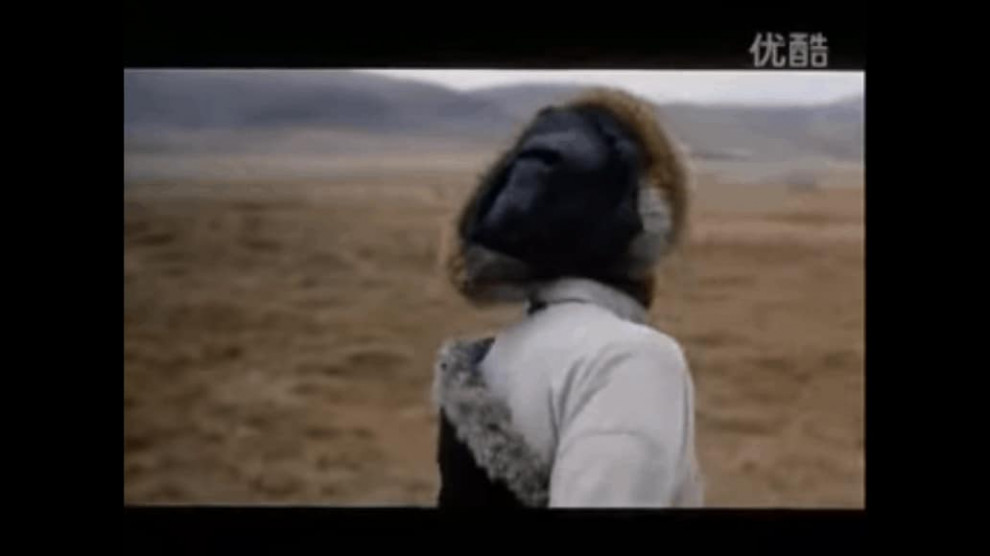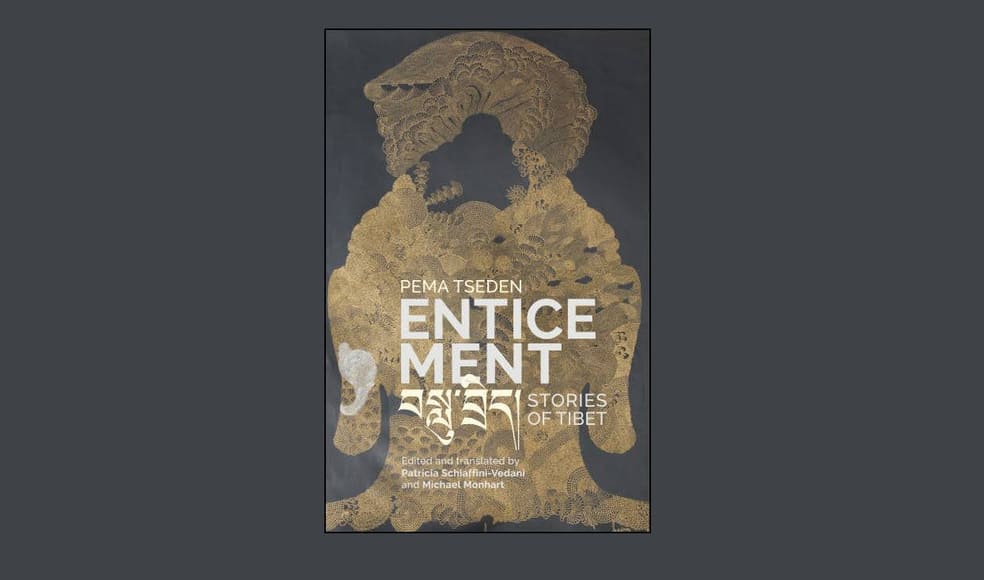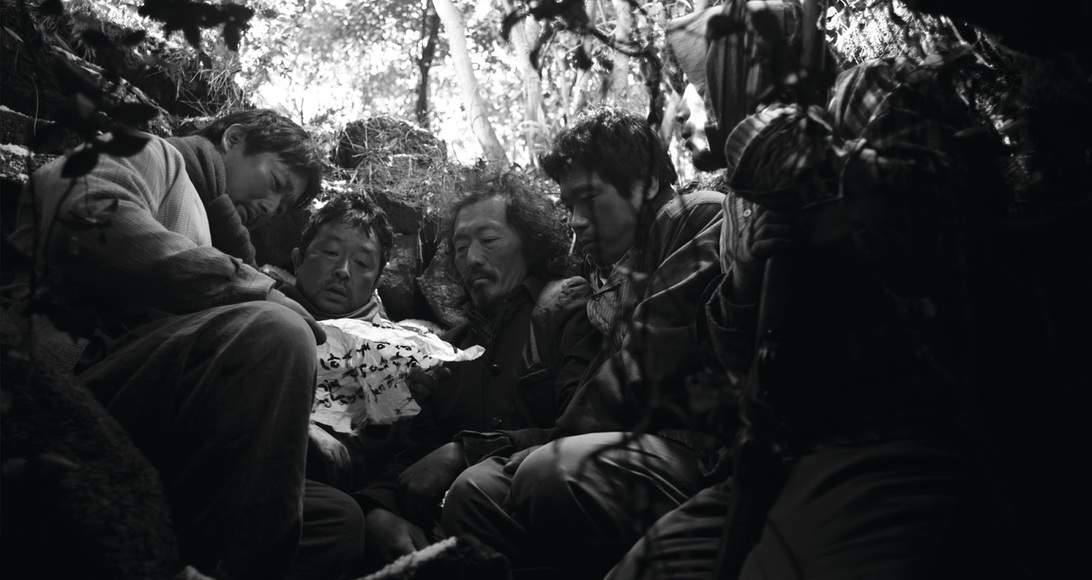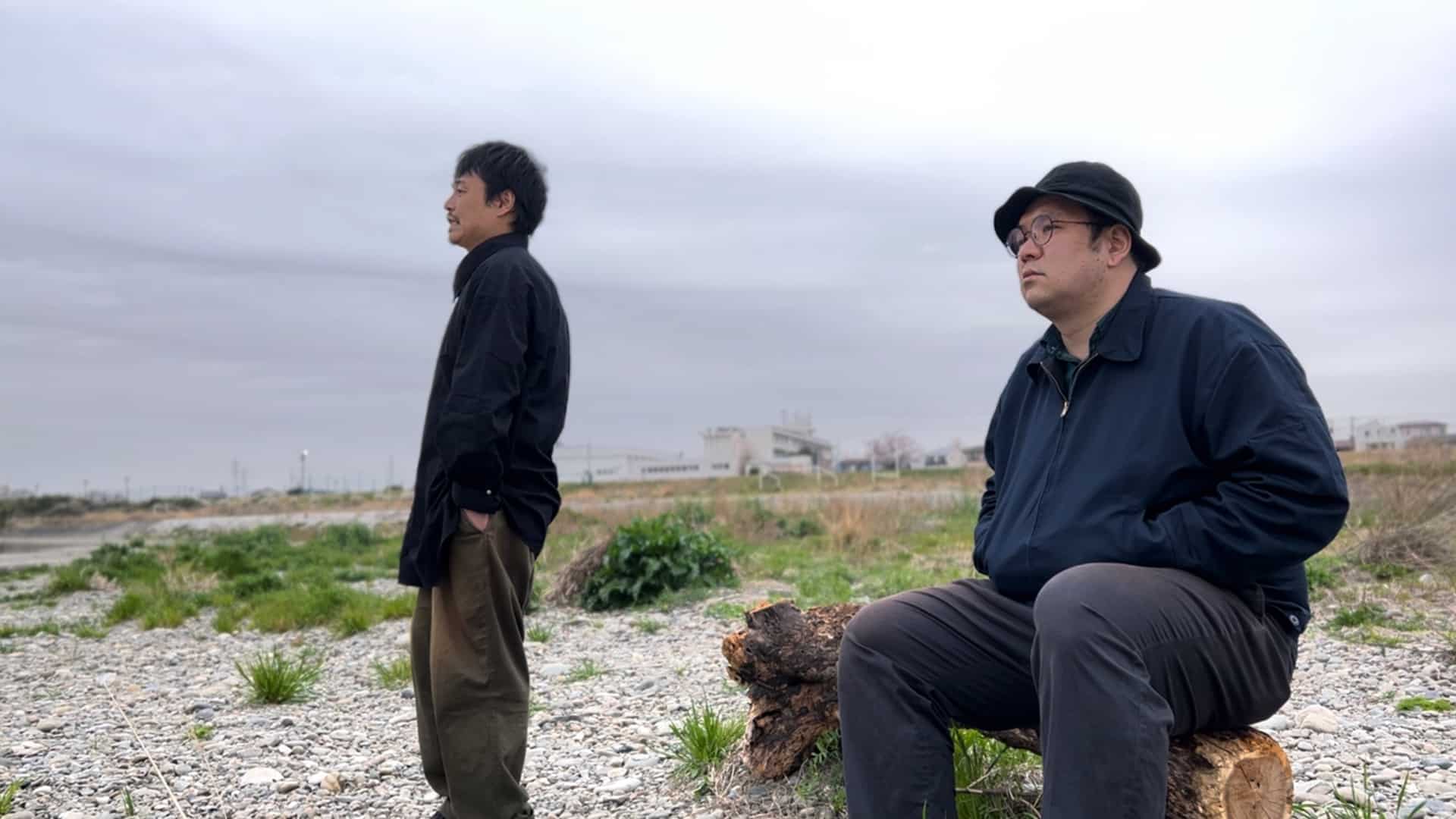These barren climes do not forgive – the cruelty in this domain speaks with a wisdom as old as the Achaen Era and just as ferocious. That life seems to cling on here and has done for centuries, no matter how sparsely, is a miracle unto itself. Cold and rugged, these steppes are enveloped by tumultuous winds seemingly with the power to carve into rock and bury their secrets deep within, left dormant for an age until their designated recipient stumbles upon them. These winds do not whisper either – they howl; without layer upon layer of covering all life here would be stripped off flesh until only the hollowness of the wayward spirit is all that remains. Either that or it is frozen in its tracks. It is within such a harsh setting that Tibetan-born director Pema Tseden took his first steps on his filmic journey with a tale as spiritual as it is muted. The titular Grassland of this short film, too, serves just as important a ‘character' as the humans and animals which struggle to eke out an existence within it.
“Grassland” is screening at
Festival des Cinémas d'Asie de Vesoul

On this ‘road trip' through the Melong Grasslands, we follow an elderly couple – Aku Tsedruk and his wife Ama Tsomo – as they embark to find those responsible for stealing the latter's sacred yak. Suspecting the culprits who previously slaughtered Tsomo's cattle some time back, the stubborn Tsedruk ignores the pleas of both his wife and the other villagers they encounter to let yak simply be gone and to move on from the issue. When they reach the sheepherders, Dorlo the patriarch makes the “petty thieves” Nyima, Huarden, and Tenko vow an oath to the gods for their own defence, that they shall spend eternity in hell if found to be guilty. After Tsedruk and Tsomo make their leave, these three cast their suspicions over to Dorlo's song Juga as he is also a “no-gooder” who, as it turns out, did the deed himself. He is sent to seek forgiveness.

The use of the term ‘road trip' here is not without purpose even no matter how tenuous. In as much as the two-lane blacktop plays great significance in road movies, so too does the landscape not just in “Grassland” but in other such films as Tseden's later picture “Sacred Arrow” for example. A great effort has been made to surround the human characters, especially Tsedruk and Tsomo, in the Tibetan landscape in every frame, at times even swallowed up by its vastness. Time seems to be null and void in this realm yet always on the move. We do not know how long the elderly duo have been travelling but the impression is for quite some time; this is helped only in the film's brevity – 20 minutes in fact – and a rudimentary knowledge of the geography. Though the audience receives the sough-after resolution our leads do not, and here Tseden shifts the focus to Juga, ending the film leaving his fate in the harsh winds' hands and in our imaginations.
This is where the spiritual nature of the film comes into play and where the film transcends its humble precedence. At each turn of the page as it were, the verse Om Mani Padme Hun is spoken or uttered, one which is quintessential to understanding the driving motivation of Buddhism and brings new light on Tsedurk and Tsomo's journey. A phrase which highlights the journey from impure to pure body and mind through the six paths undertaken by Buddha, it illuminates not just the folly of Tsedruk's assumptions, immovable stubbornness, and quick dismissal of advice, but also in the hypocrisy of his proclamation – that “religion cannot liberate [the yak] once stolen”. It is by implanting these notions in our heads that Tseden arouses our curiosity: we want to see the story unfold, to conclude; cleverly though this is simply left unanswered.

Despite the overflowing religious symbolism carved into the grain of the film, especially when noting the music interwoven within the narrative, “Grassland” is best rooted as a character study not of the characters themselves but with their livelihood in general and their interaction with the world around them. That sheepherders are willing to traverse through such hostile landscapes even against the will of their peers, highlighting the extremes of life away from civilization. Through the barrenness of this wilderness we are also forced to contemplate our own insignificance in the grand scheme of things. If “Sacred Arrow” is a meditation of rural Tibetan life, then “The Grasslands” is its grim reality counterpart, and giving Tseden a strong foundation of what he would later go on to develop.















